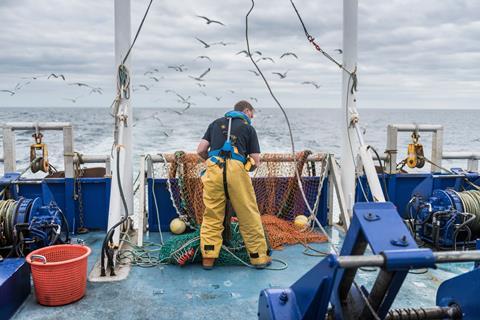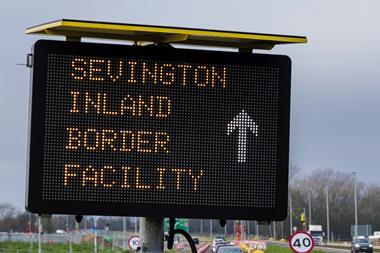
Less than half of the UK’s fishery catch limits are in line with international sustainable fishing advice, the government’s own data shows.
Just 46% of the UK’s total allowable catches (TACs) were consistent with the International Council for the Exploration of the Seas’ (ICES) assessment this year, according to data from a report published by Defra this week.
The report provided an assessment of the TACs negotiated in bilateral UK-EU and trilateral UK-EU-Norway talks, in addition to negotiations with the North East Atlantic Fisheries Commission and coastal states for setting catch limits for 2024.
For this year, of the 79 baseline total allowable catches negotiated in these agreements, only 36 were in line with ICES advice.
This accounted for only 46% of the total catches, not including the TACs unilaterally set by the UK.
The UK has an objective to increasingly set fishing opportunities consistent with scientific advice from the ICES, whether based on maximum sustainable yield or the precautionary approach.
The government data revealed this year’s statistics were an improvement compared to 2023, when only 32 of the baseline TACs were in line with sustainability advice, accounting for 40%.
But despite this, the catch levels have been met with scrutiny from campaigners.
“Where is the government’s plan for sustainable fisheries? We career from one year to the next, one quota to the next, without a clear strategy but with a proven disregard for the science, as identified by the government’s own advisors yet again this year,” said Hugo Tagholm, executive director of Oceana, an ocean conservation non-profit.
“Only 46% of this year’s catch limits have been set at sustainable levels, Cefas has found – last year, our analysis demonstrated a full half of the ‘top 10’ fish stocks on which the UK fishing industry relies were overfished or their population size was critically low,” Tagholm added. “We are putting our marine ecosystems at severe risk.”
The fishery management units covered by TACs used for international fisheries rarely align with the ICES stock assessment units, said the government, which creates a “mismatch” that “makes assessing the TACs against scientific advice highly complex and potentially open to interpretation”.
“Fisheries quotas and dynamics can be complex, but when you step back you realise that this reveals outright contempt, for UK seas, for marine wildlife, and for coastal communities,” said Tagholm.



















No comments yet